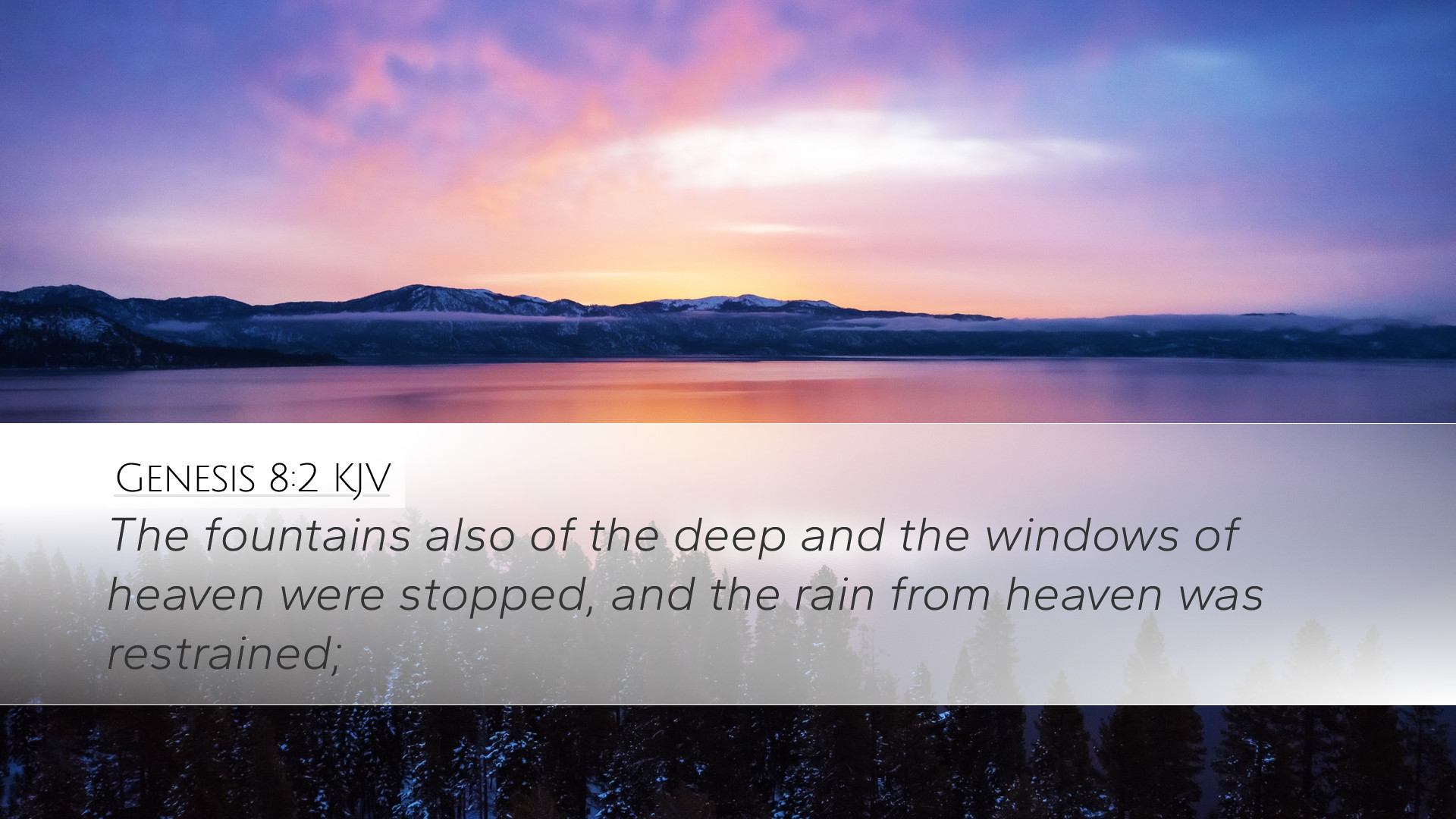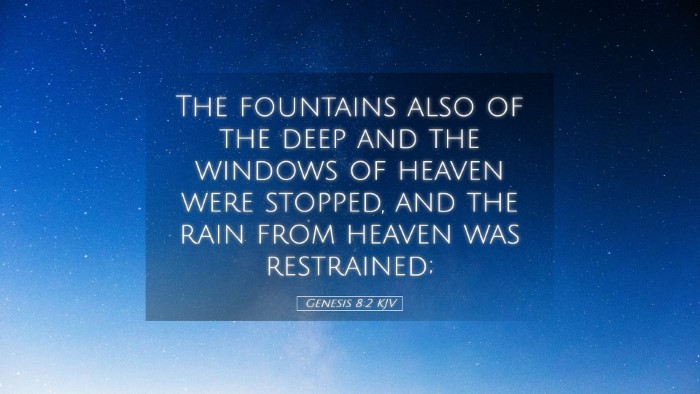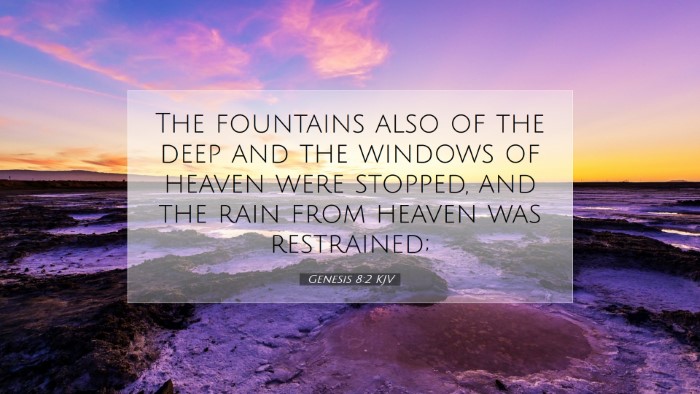Commentary on Genesis 8:2
Verse Reference: Genesis 8:2 - "The fountains also of the deep and the windows of heaven were stopped, and the rain from heaven was restrained."
Introduction
This verse marks a pivotal moment in the narrative of Noah and the Great Flood. It signals a transition from the deluge that had engulfed the earth to the beginnings of restoration. The theological implications are deep, reflecting on the nature of God's judgment and mercy, the order of creation, and the hope of renewal after calamity. Here we combine insights from notable public domain commentators to enrich our understanding of this significant scripture.
Contextual Analysis
Genesis 8:2 occurs after the Flood narrative in Genesis 6-8, wherein the earth was judged due to rampant sin and wickedness. The Flood serves as both judgment and a means for covenant establishment. This verse specifically highlights the cessation of the Flood, marking the beginning of a new era in God's relationship with humanity.
Theological Themes
- God's Sovereignty: The stopping of the fountains of the deep and the restraint of the heavenly rain illustrate God's control over the natural order. As Matthew Henry notes, "The waters which had been let loose by the divine command were now restrained by that very command." This underscores the belief that all of creation is subjected to God’s will.
- Judgment and Mercy: Albert Barnes reflects on the paradox of God's judgment through the Flood and His mercy in allowing a remnant (Noah and his family) to survive. The restraint of the rains coincides with the end of judgment and the beginning of mercy as seen in God's desire to re-establish life on earth.
- Renewal and Restoration: The imagery in this verse portrays a world prepared for renewal. Adam Clarke emphasizes how this moment symbolizes a fresh start for creation. It represents the transition from chaos back to order, echoing the creation narrative where God separated the waters (Genesis 1:6-9).
Commentary Insights
Matthew Henry
Henry elaborates on the significance of God closing the windows of heaven and stopping the fountains of the deep. He asserts that after expressing His wrath through the Flood, God’s ability to restore is profound. Henry encourages readers to consider how God, having executed His judgment, was now preparing the world for its renewal. He highlights that this teaches about the mercy that can often follow judgment, portraying God's character of both justice and grace.
Albert Barnes
Barnes provides a thorough examination of the mechanics of the Flood event and the cessation thereof. He interprets the phrase "the windows of heaven were stopped" as a metaphor for God's control over the heavens themselves. Barnes writes about how this moment provides a glimpse into God’s providential care for creation, suggesting that after periods of turmoil, God orchestrates a restoration process that is both meticulous and tender, affirming His ongoing relationship with humanity.
Adam Clarke
Clarke focuses on the spiritual implications of the cessation of the rain and the stopping of the fountains. He connects this moment not just to a physical phenomenon but to a theological truth about God’s faithfulness. Clarke sees this as a powerful reminder for believers that, despite overwhelming circumstances, God has the power to bring an end to hardship and usher in a new beginning. He emphasizes the importance of faith during times of turmoil, encouraging reflection on the meaning of hope that arises from despair.
Practical Applications
For pastors, students, and theologians, Genesis 8:2 offers rich material for deep theological reflection and practical application:
- The Assurance of God's Control: In times of chaos, whether personally or within society, this verse reassures believers that God remains sovereign over creation and His plans. It encourages faith that He can bring cessation to our troubles.
- Understanding Judgment and Mercy: This verse provides a platform for teaching about the dual aspects of God’s actions – His judgment against sin and His mercy towards the repentant. It helps in exploring the balance between these attributes in preaching.
- Hope in Renewal: Much like Noah’s family found hope in the receding waters, believers today can find assurance in God’s ongoing work of restoration. This passage can serve as a reminder of God’s ability to make all things new, fostering a mindset of expectancy for divine intervention in lives and communities.
Conclusion
Genesis 8:2 stands as a testimony to God's sovereign authority over the natural world and His promise of renewal. The insights from Matthew Henry, Albert Barnes, and Adam Clarke encourage a deep exploration of God's character as both judge and redeemer. As believers reflect on this verse, they are reminded of the hope that emerges from God's faithfulness. During trials, understanding God's mercy post-judgment reorients our focus toward restoration and revival, underscoring the redemptive narrative of scripture.


